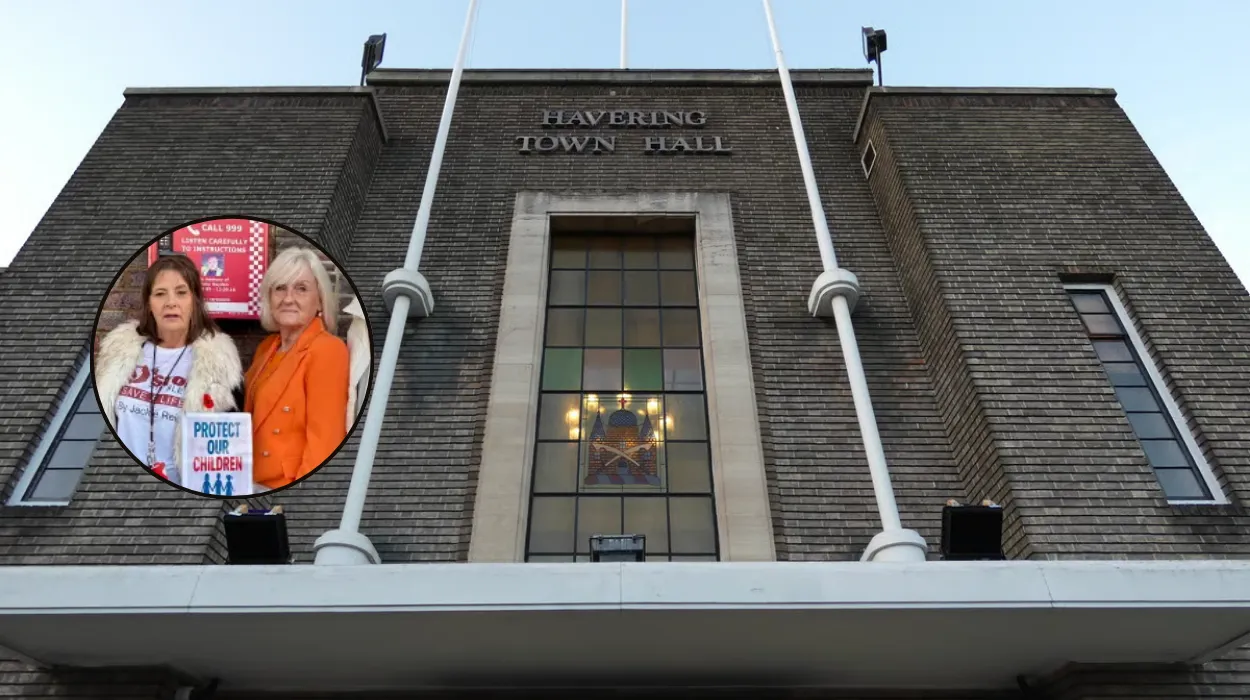Key Points
- Havering Council agreed to pay over £7,000 to a homeless mother, identified only as ‘Miss X,’ after her family lived in unsafe housing for nearly two years.
- The Housing Ombudsman reported repeated failings by the council, including poor communication, lack of support, and missed opportunities to provide safe accommodation despite safeguarding concerns.
- Miss X and her children were placed on a child protection plan in March 2023 due to welfare concerns, with a requirement for safe and stable housing.
- The council accepted a duty to house Miss X only in October 2024, nearly two years after agreeing to provide accommodation within its borough in March 2023.
- The council failed to provide interim accommodation or properly assess Miss X’s needs, including factors related to domestic abuse and safeguarding.
- Compensation awarded includes £6,300 for time spent in unsuitable accommodation, £500 for avoidable distress, £300 for poor responses by the council, and ongoing monthly payments of £300 until rehousing occurs.
- The payout comes at a financially challenging time for Havering Council, amid growing pressures on housing and social care budgets.
What happened in the case of the homeless family and Havering Council?
As reported by Sebastian Mann, a local democracy reporter for The Havering Daily, Havering Council has agreed to pay more than £7,000 to Miss X, a homeless mother, after her family was left living in unsafe accommodation for almost two years. Miss X had been homeless since 2016 and was initially housed in temporary accommodation in a different London borough. In March 2023, after her temporary home became unsafe due to a leaking wet room and a rotted bathroom, Havering Council agreed to house her family within its borough. However, despite placing her children on a child protection plan that month due to welfare concerns, the council failed to secure safe housing for them in a timely manner. Miss X was added to Havering’s housing register in April 2023 but heard nothing after her discharge from the previous borough’s responsibility in May 2023. She remains in the same unsafe property today, repeatedly raising complaints without effective council action.
- Key Points
- What happened in the case of the homeless family and Havering Council?
- What were the specific failings of the council according to the Housing Ombudsman?
- How did the council handle the safeguarding concerns for Miss X’s children?
- What compensation was awarded to Miss X and what are the council’s responsibilities going forward?
- What financial challenges is Havering Council facing related to housing and social care?
- How has Havering Council performed in complaint handling recently?
What were the specific failings of the council according to the Housing Ombudsman?
The Housing Ombudsman’s report highlighted multiple failures by Havering Council. Despite repeated communications from Miss X and her supporting professionals, the council frequently failed to respond or follow up. In September 2023, a social worker wrote to the housing department detailing the “extensive disrepair” of the temporary accommodation and requested support, but the department made only a single phone call to Miss X when her phone was broken—with no meaningful intervention afterward. When Miss X faced eviction in August 2024, she reported being advised by a Havering social worker to reject a home offer in her previous borough. However, the council failed to provide supporting evidence in court, further jeopardising her situation. Attempts to engage with the council were met with inadequate responses, which the ombudsman described as “another missed opportunity” to properly assess and support Miss X and her children.
How did the council handle the safeguarding concerns for Miss X’s children?
The children were placed on a child protection plan in March 2023 with one of the key requirements being provision of “safe and stable” housing. Despite this, the council did not escalate support or advocate effectively for the family. The children’s social care team’s involvement was limited to a single letter, with no significant follow-up to help secure appropriate housing. The adjudicator noted the council knew about the risk of homelessness and housing insecurity but failed to take adequate action. The lack of coordination and communication between the children’s social care and housing departments left the family vulnerable for an extended period.
What compensation was awarded to Miss X and what are the council’s responsibilities going forward?
To remedy the injustice, Havering Council was ordered to pay Miss X a total of £7,100, broken down as:
- £6,300 to acknowledge the prolonged time spent in unsuitable accommodation.
- £500 to compensate for avoidable distress caused by the council’s failings.
- £300 to reflect the trouble caused by poor communication and responses during the process.
Additionally, Havering Council must pay £300 monthly until suitable new accommodation is secured for Miss X and her children. Despite accepting housing duty only in October 2024, the council failed to offer interim accommodation or adequately assess her needs, including safeguarding considerations related to domestic abuse. The report stressed that Miss X was left to navigate complex legal and housing processes without adequate support from the council.
What financial challenges is Havering Council facing related to housing and social care?
The £7,000 payout arrives at a challenging time financially for Havering Council, which is grappling with growing demands on its housing and social care services while attempting to balance its budget. The pressures from these areas reflect national trends among local authorities, but the recent high maladministration rate noted by the Housing Ombudsman underscores ongoing difficulties in meeting housing obligations effectively. Havering Council has committed to improving complaint handling and service delivery, including centralising complaints functions and introducing better performance tracking since December 2023.
How has Havering Council performed in complaint handling recently?
According to the Housing Ombudsman Landlord Annual Report 2023–2024, Havering Council had a maladministration rate of 78%, slightly above the national average of 73%. The council’s complaints handling was improved by centralising the function in late 2023, and early signs indicate better response times and resolution rates. Havering Council’s compliance with the Ombudsman’s recommendations was fully achieved within the required timeframe, with a total of £5,815 paid in remedy payments during that year before this recent case. The council remains focused on reducing complaint volumes and improving outcomes for residents as part of ongoing service improvements.



